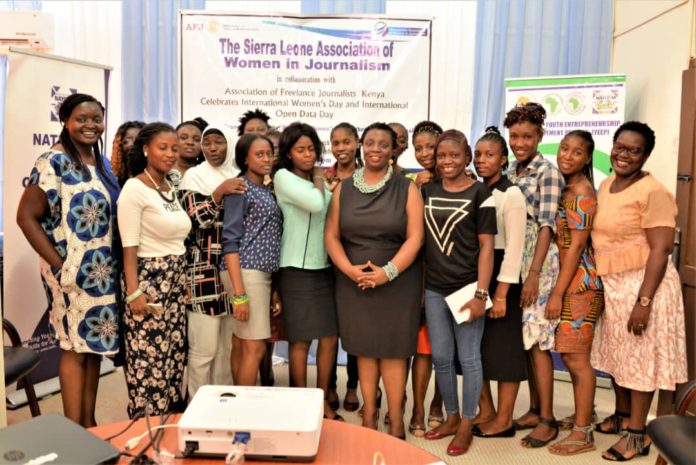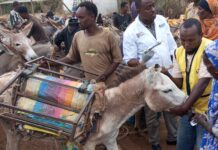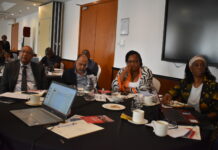BY Winnie Kamau
Weaving our way on the streets of the mystical Freetown with no traffic as a holiday of the International women’s day has spilled over from Sunday as we head to the Sierra Leone News Agency (SLENA) national office.
I am fascinated to see the beautiful capital of Sierra Leone donned upon the many hills as the exquisite view of the ocean beckons.
At SLENA offices we are met by the many eager Journalists who are willing to learn some Data Journalism skills. Armed with pen and paper the Journalists extend their warm greetings.
We held this session to celebrate the International Open Data Day #0DD2020 which was held on 7th March. For us, as Association of Freelance Journalists (AFJ) and SLENA, we did approach Open Heroines for grant and through Development Gateway they were able to give us a grant of 500 dollars.
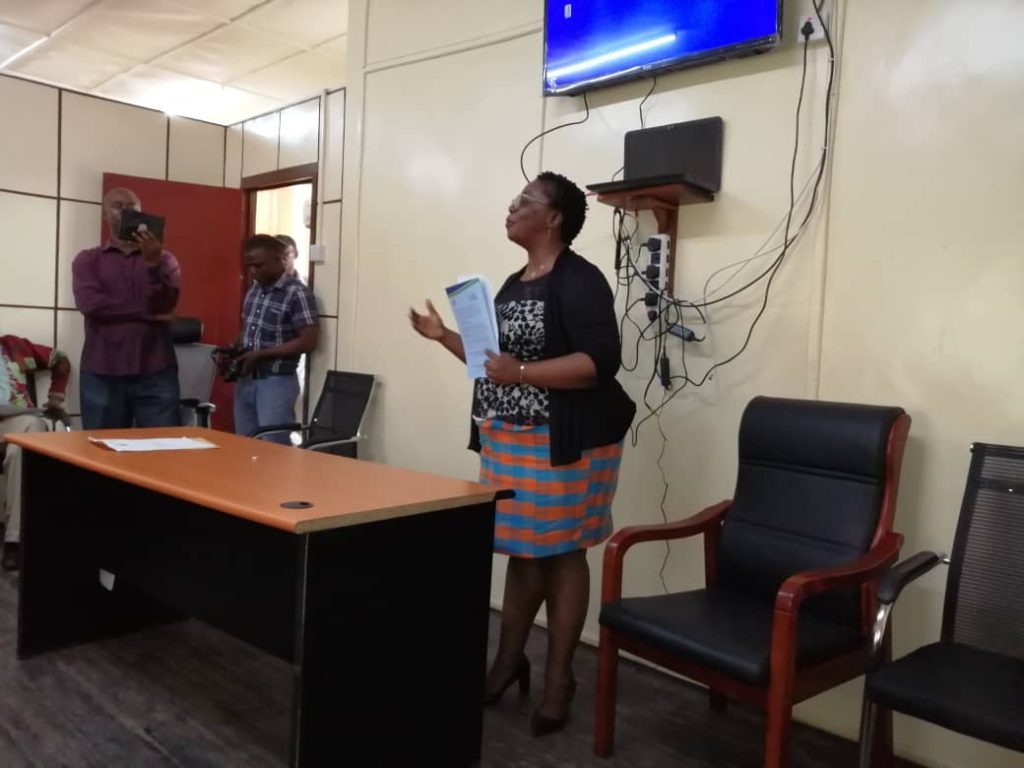
Most importantly SLENA felt there was a need for their Journalists to be equipped and we did have Journalists coming from the provinces hence the decision to hold our meeting on 9th March.
The Acting Managing Director of SLENA, Yeama Thompson introduces the three guest facilitators who would run the full-day session.
Commissioner Thompson is one energetic, lively and very straightforward if I would describe her. Her laughter fills the room but also is her energy and passion in Open Data and Data Journalism.
Our first Speaker spoke on Ethics and Law was a renowned Lawyer and Human Rights, Activist, Abdul Fartoma. He was candid on how the law works and how the Journalists need to safeguard themselves from unethical practices like defamation and unethical reporting whilst reminding them about the criminal libel law. He also quipped on the need for Journalists to have a specialization in their careers.
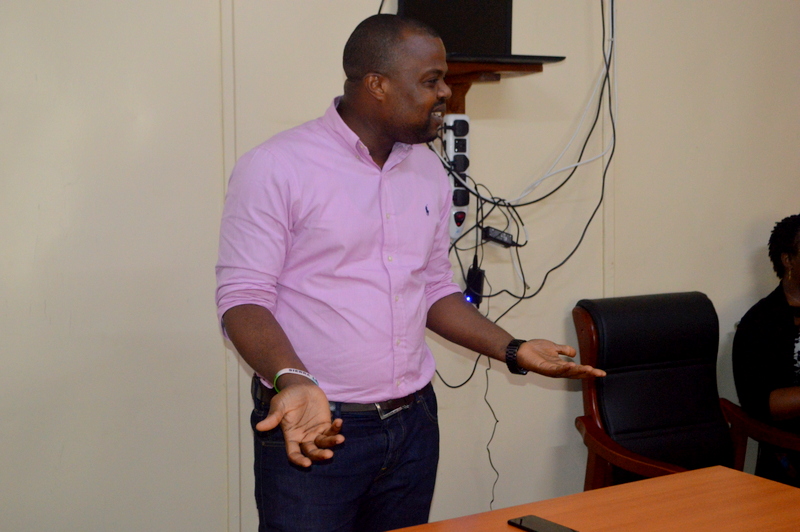
SLENA is a News Agency that came through a Cabinet conclusion CP43(77) 15 of 4th November 1977 It was thriving but after the Civil war and other political vested interests, the Agency was on its deathbed. Until 25th May 1997, SLENA produced a daily news bulletin which, and since 1987 was the only daily news tract in the country.
SLENA has had staff who have worked for it for over 2 decades and most of the staff currently are volunteers with 7 permanent staff. It is a Hercules task to bring the sleeping giant of information back to life.
Some of the Bureau Chiefs from the provinces also explained the reason why they were not able to specialize due to lack of enough resources and shortage of staff.
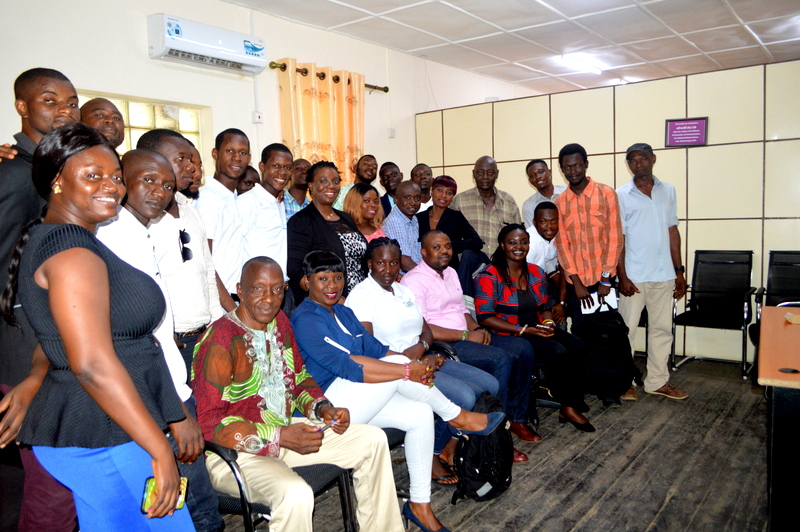
Our second Speaker was Clementina Akran a senior Data Scientist and Head of the Open Data Division at Statistics of Sierra Leone. She was able to take us through the basics of statistics and interpreting the Consumer Price Index, the Producer Price Index and how the GDP works. She also took us through the Open Data portal od Stats SL which was a resource Journalists could use when telling stories as it had credible data.
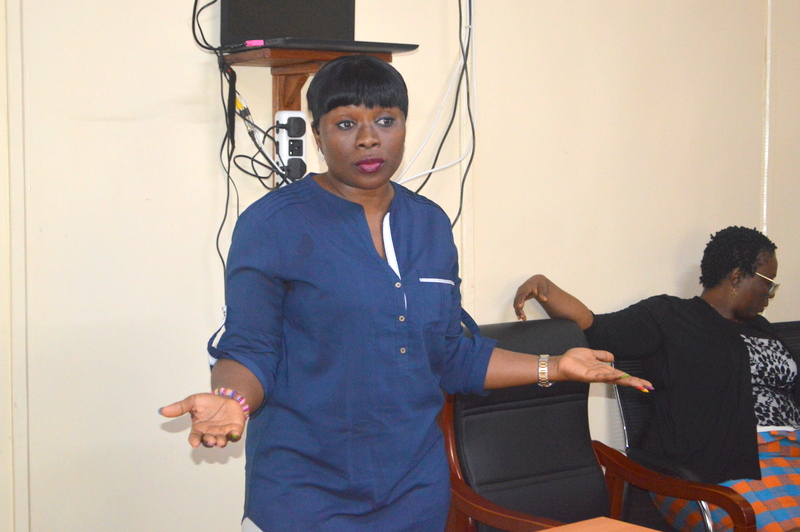
I had the chance to teach on the Basic Principles of Open Data and explain what Open Data was. I also had a chance to explain what Data Journalism is all about. I must admit that in SLENA the ratio of men and women is wanting but we did look at some of the Open Data portals that Journalists can get factual information and use numbers to tell their stories.
Learning the basics of hyperlinking of a source of information into their stories was so powerful. We also learned the benefits of changing with the time especially with the ever-changing technologies. The StatsSL Open Data Portal was one resourceful tool for the Journalists of Salone. We did learn how the steps of Storytelling in Data Journalism which is not the normal pyramid of storytelling.
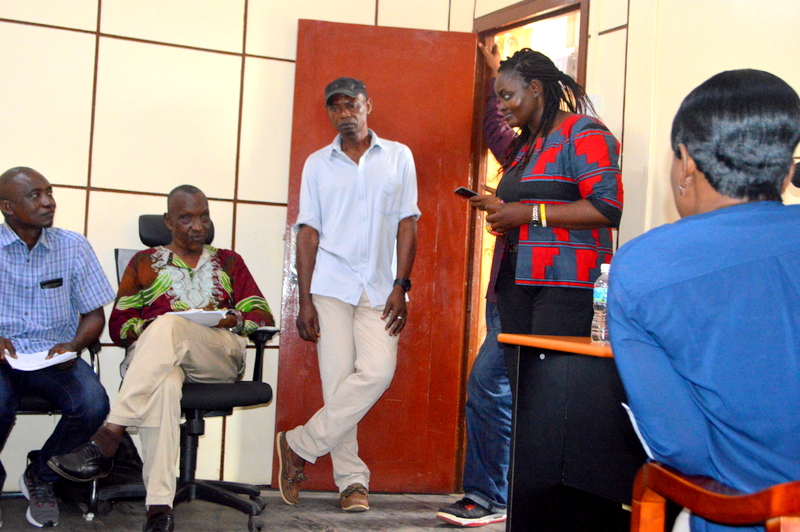
We had an opportunity to explore the basics of linking the data to our stories through a hyperlink.
We had an opportunity to speak to the Web Manager of the Sierra Leone Police Website, Inspector Brima Kamara. He did give us tips on whom to talk to in the police. We also learned on the number of police stations that are there in Sierra Leone and they have been geocoded on the Open Data portal of Stats SL.
The SLENA Bureau Chiefs and the Journalist did bring out the need for more of this kind of training to help familiarise them with more data skills and also learn on the Open Data portals that are currently available. Also, there was a need for a longer session to have practical lessons on how to use the available open-source visualization tools.
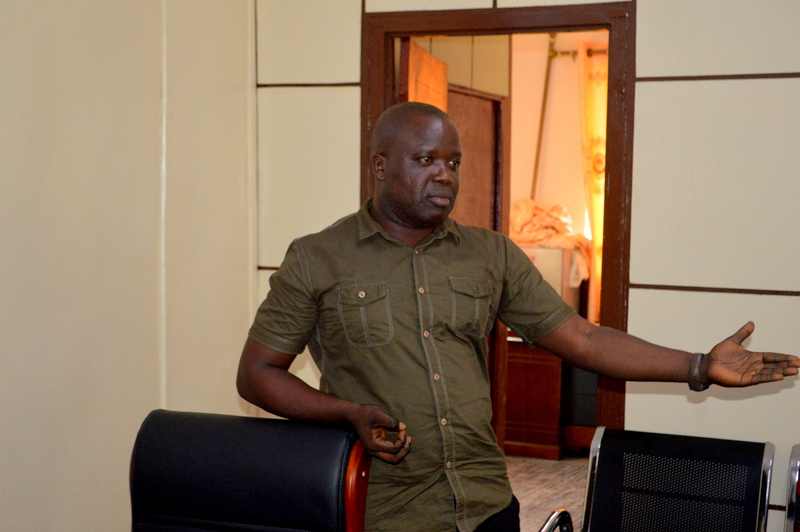
On the second day, AFJ partnered with the Sierra Leone Association of Women in Journalism (SLAWIJ). This was a very in-depth exploration of Gender-Based Violence Data that we had anticipated to explore.
In 2018 the President of Sierra Leone H.E Maada Julius Bio gave a declaration for a state of emergency in Sierra Leone due to the rising number of rape cases.
This year’s country’s theme is ‘Hands off our Girls’ campaign is being spearheaded by the First Lady H.E. Fatima Maada Bio which is targeted to raise awareness against the rising number of violence against Women and Girls.
We had a chance to look at the basic principles of Open Data that are Findable, Accessible, Interoperable and Reusable.
One of the concerns raised by the eminent ladies in the room was the lack of Gender-Based Violence Data. The lack of harmonized data in the Government systems and also lack of collaborations between the NGOs and Government agencies.
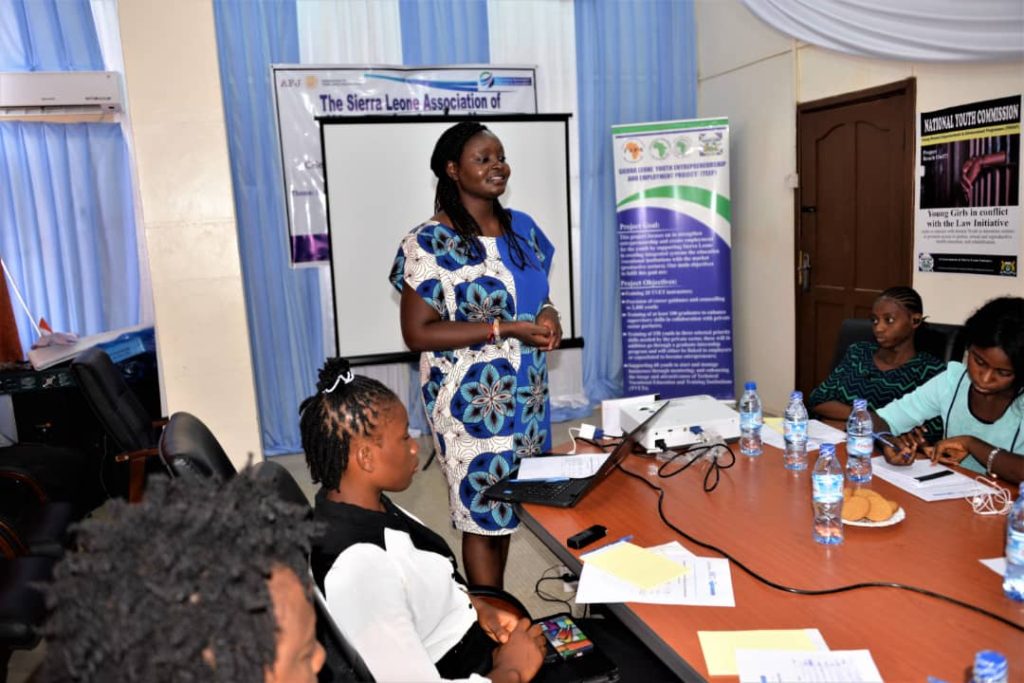
The only data we could access on Gender-Based Violence specifically on Rape cases were reported on the Rainbo Initiative while the Statistics Sierra Leone Open Data Portal had none of that. There is a need for collaboration between NGOs like Rainbo Initiative, Stats SL, Family Support Unit (FSU) and Police to harmonize on the data that is anonymized and presented to the public without fear of data breaches.
This was really a bummer as we were looking forward to encouraging ourselves and show how best we can tell stories with GBV data.
Also, we did learn that many of the GBV cases especially fall along the cracks on the Corridors of justice due to the prolonged hearings. One sad thing is that GBV cases in Sierra Leone especially in the courtrooms of Freetown are only heard on Saturdays. This is due to the congested courtrooms during the week and it does not give the deserved privacy and protection that is required.
Cases are heard only on Saturdays and this translates to hearings once a week. This for many of the victims seems slow and they feel stigmatized for some seen going to court on Saturdays. Also for those whose religion is observed on Saturdays then have no option but to drop their cases.
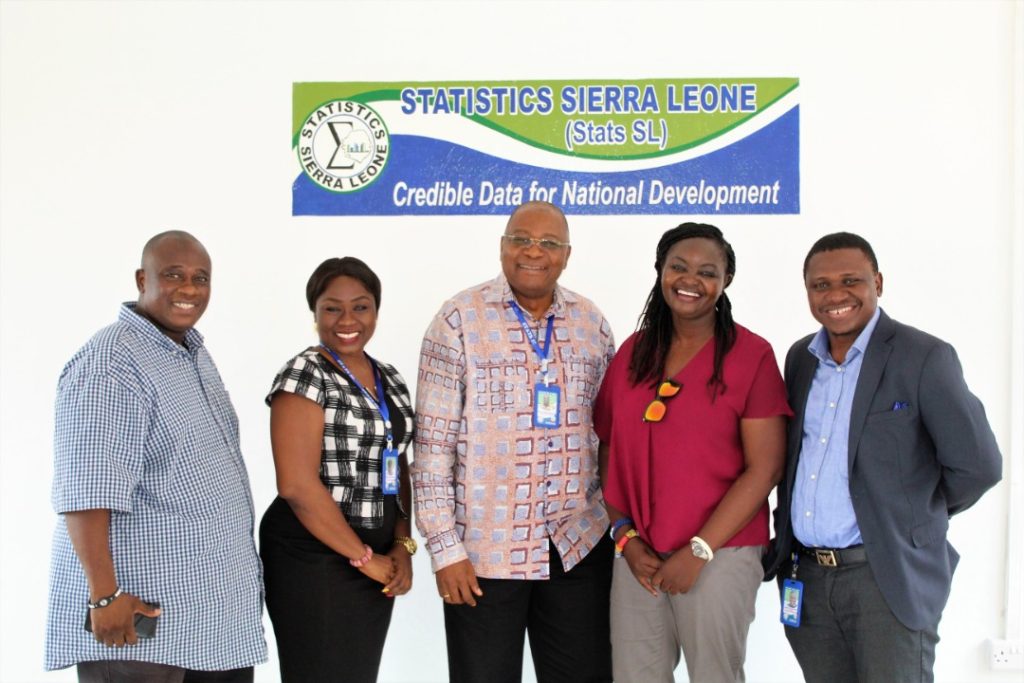
As we shared this we realized there’s urgent need to collect data and harmonize the data among the institutions and also look at ways that can help reduce the stigma attached to hearing Court cases on Saturdays only if there can be a frequency of hearings of the GBV cases.
We also had a chance to talk on how best to communicate Data by the Radio Presenters and among Radio Journalists. Luckily for the Salonese Journalists, the Stats SL portal is user-friendly and they have dashboards that are interactive and you can export the visualizations that can help in telling the stories better and more accurately.
It is worth noting that Stats SL moved from number 121 to 87 in the whole world during the Open Data Rankings in 2018.
We also got interests from Journalists from Monrovia, Liberia, and Lomé in Togo who would want to also learn Data Literacy skills in their country. We hope that from this collaboration between AFJ and SLENA is the beginning of the ripple of many more data literacy classes.
We also made the headlines in the news with one of the Local Broadcasting Media houses in Sierra Leone.

